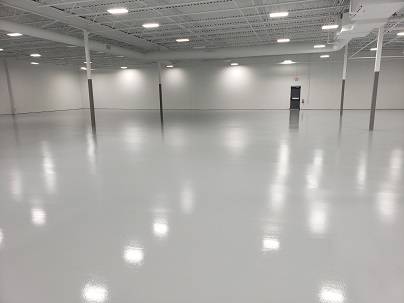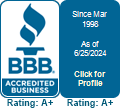Do you own or operate a warehouse that is frequently open to the elements? Are loading docks open all year round to allow easy access to your facility as well as constant air flow? If you answered yes to either or are in a similar boat, then you may be wondering about the effects of the temperature on epoxy industrial concrete flooring in Twin Cities!
Hot Temperatures
In the summers, your facility may get hot from the temperature outside – but what effects does that have on your industrial concrete flooring? Realistically, none. While epoxies come in a variety of heat-resistant options, even the lowest resistance ones can typically withstand temperatures of 150°F. While other, more heat-resistant options can withstand temperatures up to 450°F or more!

On the off chance your epoxy industrial concrete flooring is subjected to hotter temperatures than it can withstand, the epoxy may grow weaker. This would cause the epoxy to distort and soften until it loses its shape and shine.
When you choose Advantage Coating for your industrial concrete flooring, we can help you decide on which coating option is best for you and your facility. You should never have to worry about hot temperatures negatively affecting your floors, as our experts will recommend coating options to negate those issues altogether.
Cold Temperatures
Now, how about colder temperatures? How do extreme colds affect epoxy? There are a few outcomes of exposing your epoxy to cold temperatures, but for the most part these outcomes only affect epoxy coatings that have yet to cure.
1. Extended Curing Time
As temperatures lower, epoxy takes more time to cure. While there are a few instances where this can be used to someone’s advantage (like for jobs that require longer working time), this normally only extends the length and cost of jobs.
2. Rise in Humidity
While this may sound backwards, colder temperatures can lead to an increase in moisture around epoxies that are still curing. This added moisture can cause the normally glossy finish of epoxy to be more clouded once cured.
3. Increased Viscosity
Cold weather also increases the viscosity of epoxy, making it harder to mix and cure. This can also cause issues in epoxies that are self-leveling.
However, the cold will not cause cured epoxy to crack or break, meaning that once cured, epoxy industrial concrete flooring will protect your concrete floors – even in the coldest months.
Are you interested in learning more about industrial concrete flooring in the Twin Cities area? Contact Advantage Coating today at 952-556-8720 or contact us!


